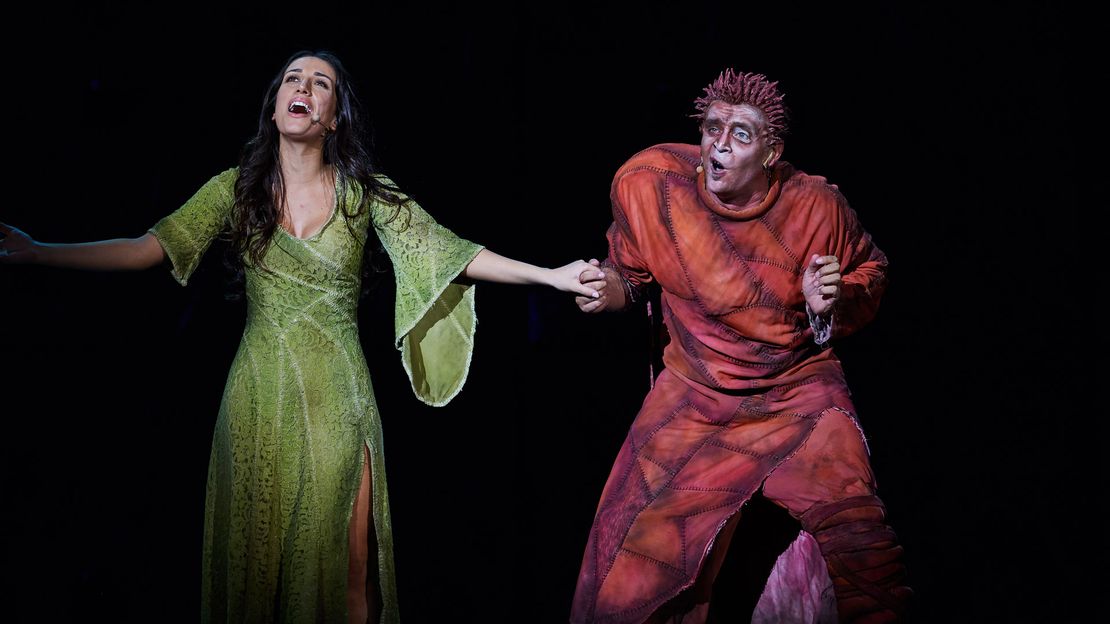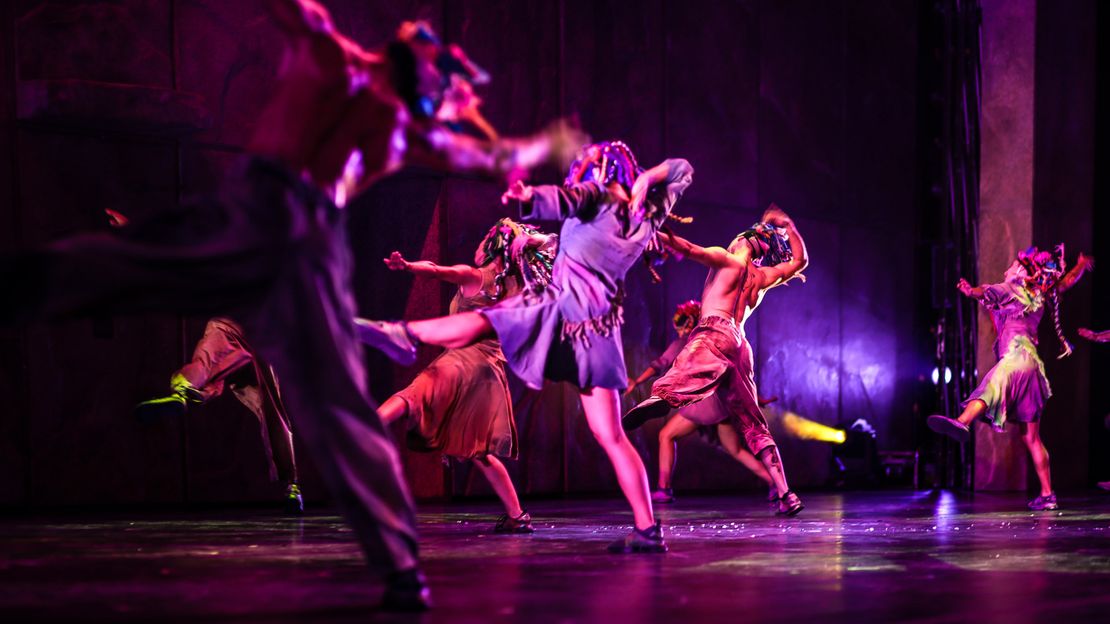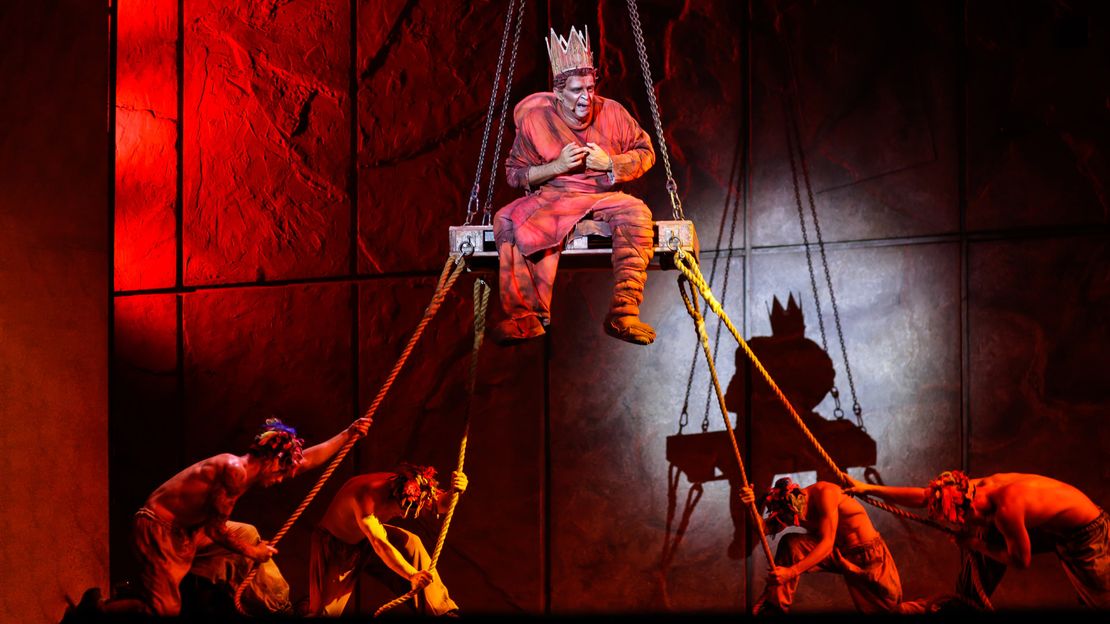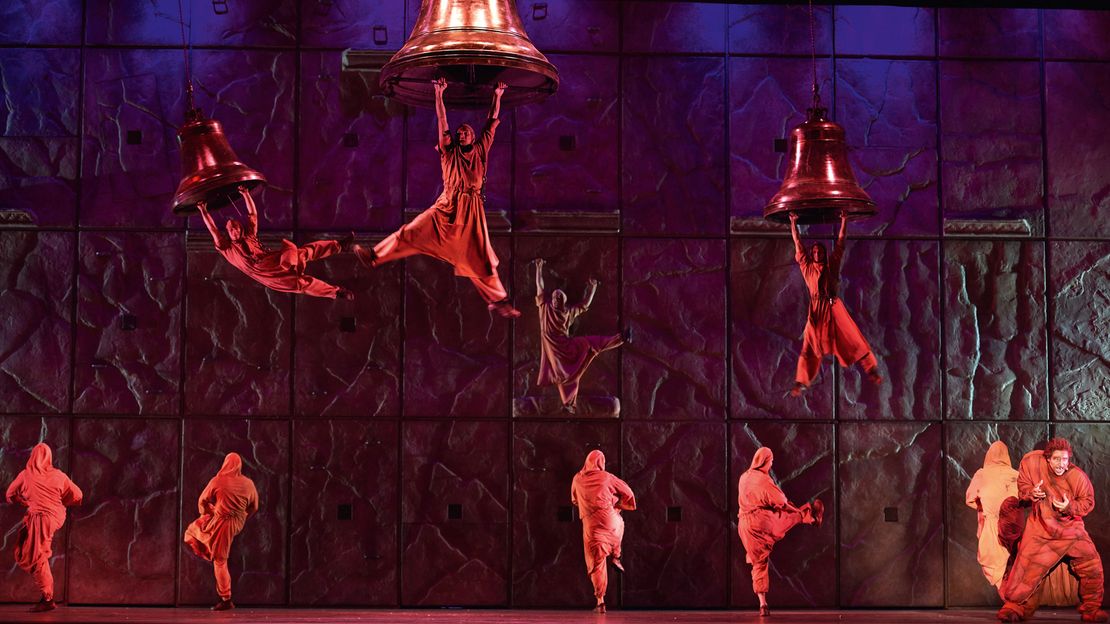Riccardo Cocciante
One of Europe's most prolific and successful artists and composers, he is a unique phenomenon in the international music industry, singing not only in Italian, Spanish and French, but also producing different works in each of these three languages. In many countries, some of his greatest hits have become classics. With more than 40 albums to his credit, countless concerts and a long list of prestigious musical collaborators, Riccardo Cocciante explores all creative fields and processes, from composing songs for his own performances to composing with and for other artists, casting and directing young performers for his popular works, and engaging with a wide range of musical expressions: from songs to musicals, from film soundtracks to rigorous theatre music. Raised in a multilingual environment – born in Saigon (Vietnam) to a French mother and Italian father, he lived in Rome from the age of eleven – he has experienced various cultures and absorbed multiple influences, managing to explore very different artistic experiences. He is self-taught in music, which requires strong willpower and a drive for perfectionism, combined with a strong independent and cosmopolitan spirit.
Luc Plamondon
Born in Quebec, Luc Plamondon is now one of the most respected authors in France and Canada, having received the highest artistic honours in both Quebec and France. After graduating in education from Laval University and studying literature at the University of Montreal, art history in Paris, Madrid and Rome, and modern languages in London (where he was won over by the Rolling Stones and the Beatles), he discovered opera in Berlin. This was followed by a year of wandering around the United States. In New York, he saw all the musicals playing on Broadway and in San Francisco. He was enchanted by Hair, the first rock musical, which would be the spark that led him, ten years later, to write Starmania, whose Paris production was directed by Tom O'Horgan, the famous director of Hair. Returning to Montreal in the 1970s, he collaborated with Diane Dufresne, for whom he wrote 75 songs. Considered the first French-language rock singer-songwriter, in the 1980s he was called upon to work for artists of the calibre of Julien Clerc, Catherine Lara, Johnny Hallyday, Riccardo Cocciante and others. His career reached its peak in 1992 with Dion chante Plamondon, a tribute album dedicated to him by Céline Dion. Distributed worldwide, it sold two million copies. Gradually, Luc Plamondon's career as a lyricist gave way to that of a musical writer, with works such as Starmania, with music by Michel Berger, which was staged between 1978 and 1979. The show was performed in several countries around the world, attracting over 6 million spectators. In addition to this show, Plamondon wrote five other musicals: Lily Passion, La Légende de Jimmy (1990), Sand et les Romantiques (1992), Cindy (2002) and, of course, Notre Dame de Paris in 1998.
Pasquale Panella
Writer, poet and lyricist, he was born in Rome and began his career in 1976, after writing plays and collaborating with Enzo Carella. He became known to the general public through his collaboration with Lucio Battisti, which began in 1983 for Adriano Pappalardo's album Oh! Era ora, for which Battisti was responsible for the arrangements. He wrote the lyrics for the songs on Battisti's last five albums: Don Giovanni, L'apparenza, La sposa occidentale and Cosa succederà alla ragazza. He also wrote for Amedeo Minghi and Mietta (Canzoni, Dubbi No, Fare l'Amore for the 2000 Sanremo Festival and Baciami adesso presented at the 2008 Sanremo Festival). Mango, Zucchero, Anna Oxa, Mina, Marcella Bella, Angelo Branduardi, Marco Armani, Sergio Cammariere, Grazia Di Michele, Mino Reitano and Valeria Rossi. As well as being an author, he has been performing for years in recital shows in which he reads (and interprets) writings by Raymond Carver, Chet Baker and Louis Ferdinand. For Minimum Fax, he published the novel La corazzata (1997) and the collection of micro-stories Oggetto d'amore (1998). Among Pasquale Panella's most important works is the 2002 Italian version of the libretto for Riccardo Cocciante's show Notre Dame de Paris, a true “rewrite” rather than a translation from the original French. In this regard, he states: “For me, the romantic is real, and Cocciante's music that I have listened to is the score of a musician unleashed in his senses, gestures and inspiration that transcends the boundaries of songs and becomes romantic”. He returned to work with Riccardo Cocciante on the latter's popular opera Giulietta e Romeo in 2007. In 2011, for Mango's album La terra degli aquiloni (The Land of Kites), Panella wrote La sposa (The Bride), the first single, and two other songs, Chiamo le cose (I Call Things) and Tutto tutto (Everything Everything).
Giò Di Tonno
Born in Pescara in 1973, he participated in Sanremo in the 1990s and made his debut with his first album. Since 2002, he has played Quasimodo in Notre Dame de Paris, establishing himself in Italian musical theatre. He won the 2008 Sanremo Festival together with Lola Ponce with “Colpo di fulmine”. He starred in musicals such as Jekyll & Hyde and I Promessi Sposi, and collaborated with Disney on Chicken Little. He is a well-known TV personality, winning Tale e Quale Show (2012), and released the albums Santafè (2008) and Giò (2014).
Elhaida Dani
Born in Albania in 1993, she showed extraordinary talent from an early age and won numerous international festivals between 2011 and 2012. In 2013, she triumphed in the first edition of The Voice of Italy, led by Riccardo Cocciante, and released her first singles and EPs. In 2015, she represented Albania at the Eurovision Song Contest with “I'm Alive”, reaching the final and the TOP 20. Since 2016, she has played Esmeralda in Notre Dame de Paris (French version), performing in Europe, Asia and North America. She is also the author of several songs, including “Me Mbaj”, “Amazing” and “Sugar Wings”.
Angelo Del Vecchio
Born in Benevento in 1991, he developed a passion for music at an early age and made his debut at the age of 15 in Riccardo Cocciante's Giulietta e Romeo. Since 2011, he has played Quasimodo in Notre-Dame de Paris, becoming the only singer in the world to have performed in the show in three languages. He has performed in over 1,000 shows in prestigious theatres in Europe, Asia and America. Since 2023, he has participated in major international events, including the French Musical Gala Concert and the 2024 Chinese New Year Concert. In 2024, he played Don Carlos in the musical Don Juan and collaborated on various musical projects, including Rock Revolution and Cocciante canta Cocciante.
Gianmarco Schiaretti
Born in 1986 in the province of Parma, he cultivated a passion for singing and theatre from an early age and made his debut at the age of 17 in Cocciante's Giulietta e Romeo. He gained international fame playing Tarzan in over 1,000 performances in Hamburg and Stuttgart and later in Evita, also in the West End and at the Teatro Regio in Turin. He has performed at prestigious events such as the Royal Albert Hall and the BBC Proms, and since 2019 he has played AJ Golden in Cirque du Soleil's Paramour and Febo in Notre Dame de Paris. Since 2021, he has played leading roles in international musicals such as Don Juan, Casanova Opera Pop and Moulin Rouge. Between 2023 and 2025, he will play Gringoire in Notre Dame de Paris, release the single Le Même Dilemme, make his debut in China with solo projects and, in 2025, play Macbeth in the musical Lady M in Shanghai.
Graziano Galatone
A multifaceted artist born in 1973 in Palagianello (Taranto), he is a light tenor, theatre actor, author and teacher of musicals and popular music. He collaborates with Lucio Dalla, for whom he writes and arranges songs, including the famous Pizzica version of Disperato Erotico Stomp for the Notte della Taranta. He plays leading roles in musicals: Capitan Febo in Notre Dame de Paris, Cavaradossi in Tosca Amore Disperato, Lorenzo il Magnifico and Renzo Tramaglino in I Promessi Sposi. He is the author of the opera Bernadette, il Miracolo di Lourdes and winner of awards such as the Sandro Massimini (2004) and the Persefone (2010). Active in international projects, in 2019 he was a guest at the Sanremo Festival and continues to teach in workshops and musical theatre schools throughout Italy.
Vittorio Matteucci
He became one of the absolute protagonists of several important operas, playing iconic roles such as Judas in Jesus Christ Superstar, Frollo in Notre Dame de Paris and Scarpia in Tosca – Amore disperato. Over the years, he has also won over audiences on television and in the theatre, participating in highly successful programmes and leading important productions such as Dracula and numerous concerts with Cocciante, Di Tonno and Galatone. At the same time, he has developed a strong authorial identity, signing works such as Sara and continuing to reinvent himself, most recently in the role of Porthos in The Three Musketeers, confirming himself as a leading voice and performer on the Italian scene.
Camilla Rinaldi
A singer and actress, she grew artistically by studying singing, dance and acting, soon achieving her first television successes with Io Canto and a duet with Alessandra Amoroso. In 2016, she landed her first major co-starring role in the film Edhel and continued to distinguish herself by winning awards as best young actress and national performer in the CONI championships. At the same time, she worked in musicals, joining a Roman company, wrote and starred in the short film Fragile, and continued her studies with excellence, graduating with honours and receiving a degree with honours. In 2024, she took a decisive step in the Italian musical scene by joining the cast of I tre moschettieri – opera pop in the role of Milady.
Beatrice Blaskovic
Born in Trieste in 2002, she grew up artistically through singing, piano and dance, performing from a very young age and soon embarking on a multifaceted career in music and theatre. After graduating from high school, she moved to Rome, where she studied acting with the Meisner Technique, attended workshops with important directors and, in 2023, was admitted to the preparatory course at the Silvio D'Amico Academy, consolidating her comprehensive acting training. In the field of music and performance, she perfected her skills at prestigious schools in Rome, winning the top prize at the Percoto Canta national competition in 2019 and distinguishing herself through significant collaborations, including opening for Antonella Ruggiero's concert. From 2024 to 2026, she joined the cast of I Tre Moschettieri – Opera Pop (The Three Musketeers – Pop Opera), playing Costanza, a role that represented a fundamental step in her artistic development and her entry into national musical theatre.
Matteo Setti
He began his artistic career in the early 1990s as a rock frontman, immediately distinguishing himself for his powerful and versatile vocals, before moving on to musical theatre with Rent, where he played Paul and later Roger. His big break came in 2002 with Notre Dame de Paris, a show with which he toured Italy for years and which accompanied him on several occasions, establishing him as one of the most recognisable voices in pop opera. At the same time, he gained significant international experience, including his debut in Paris with Casanova, produced by Pierre Cardin, tours in Europe and a significant stint in the United States with swing shows and the recording of the album Italian Factor in Nashville. In recent years, he has broadened his horizons with new creativity and original productions, such as Bòre and the recent project Il Domatore d'Aria, establishing himself as a versatile artist active in theatre, music and high-profile events.
Alessio Spini
A singer and performer active nationally and internationally, he made his debut in 2007 in Riccardo Cocciante's show Giulietta e Romeo. Throughout his career, he has performed rock and metal repertoires, also lending his voice to tributes dedicated to historic bands such as AC/DC, Judas Priest, Led Zeppelin, Deep Purple and Van Halen. He was part of the international cast of the show Rock The Circus in Germany, consolidating his stage experience in productions with great visual impact. He is the frontman of Screamin' Demons and, since 2021, the voice of Thunder Rising.
Luca Marconi
Singer, composer and actor, initially active in the prog-rock band Picaroon's Spark and in the Contemporary Orchestra of Teramo. In 2011, he joined the cast of Notre Dame de Paris, playing Gringoire and then Febo on international tours in Europe and Asia. He has worked with prominent artists such as Riccardo Cocciante, Bobby Kimball (Toto) and Maestro Riccardo Muti, playing leading roles in musicals such as Mimì è una civetta, San Michele, Otello – L'ultimo bacio and We Will Rock You. He is a composer and lyricist, a voice for DreamWorks TV productions and participates in rock-symphonic projects such as Queen at the Opera. In 2018, he released his first solo album, Freely Me, available worldwide.
Massimiliano Lombardi
He discovered his vocation at the age of twelve, when seeing Notre Dame de Paris changed his life and that evening he decided that one day, sooner or later, he would be on that stage. He thus began to study theatre and singing; after graduating from high school, he trained at Gino Landi's Da.re.c Academy, where he studied vocal technique and musical theatre. Since 2011, he has alternated between working on cruise ships – performing in piano bars and on-board theatres – and musical productions on land. He made his stage debut in Forza Venite Gente, playing the role of Friar Francis. Parallel to his career as a performer, he began writing songs at the age of fifteen and, since 2018, has been composing for cinema. He studied composition and sound design for films and video games, developing a personal musical language oriented towards storytelling. His first complete soundtrack was for the independent film Who Was He, entirely written and produced by him. Today, he combines singing, musical theatre and music for images in an ever-growing artistic career.




